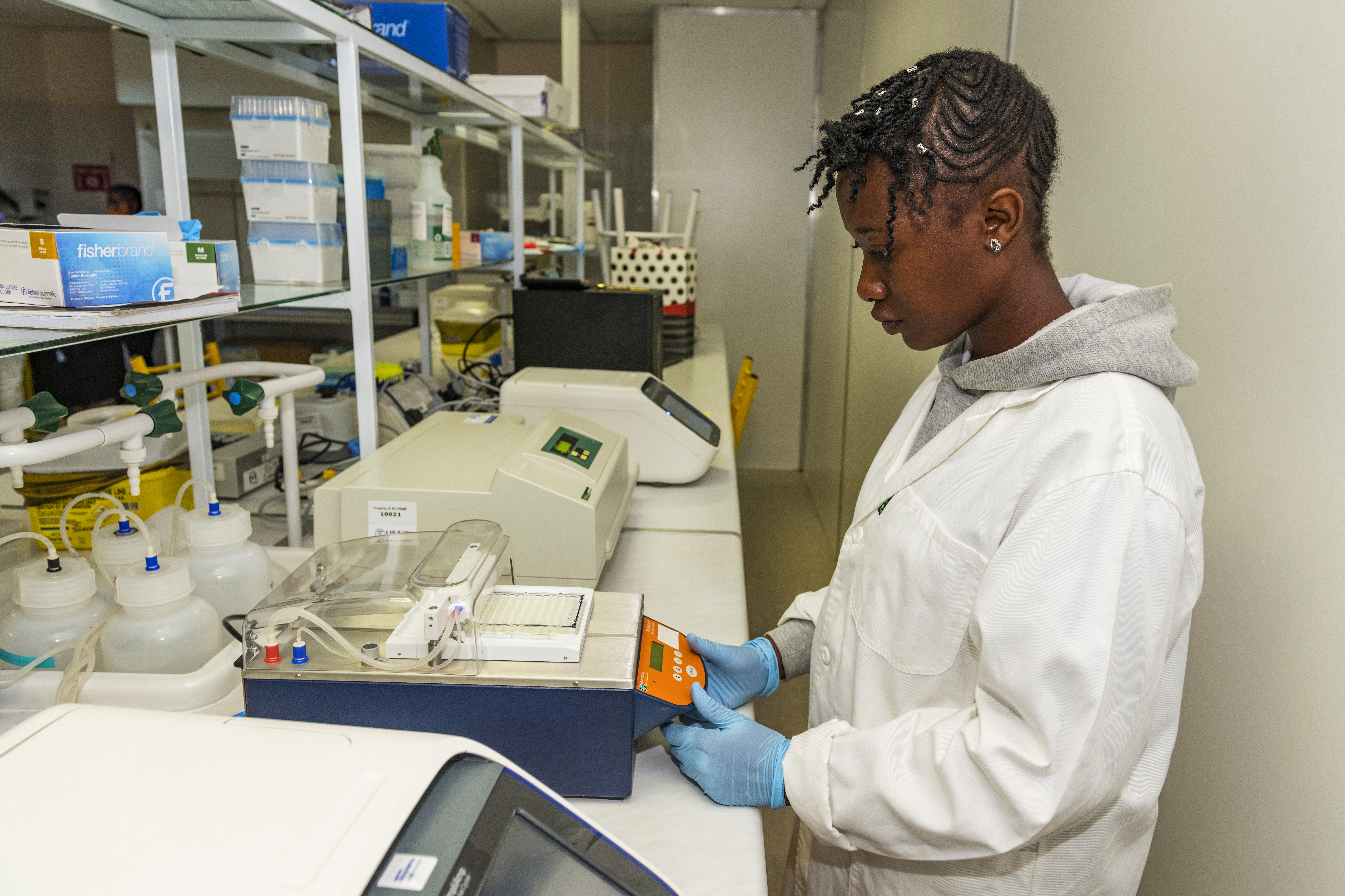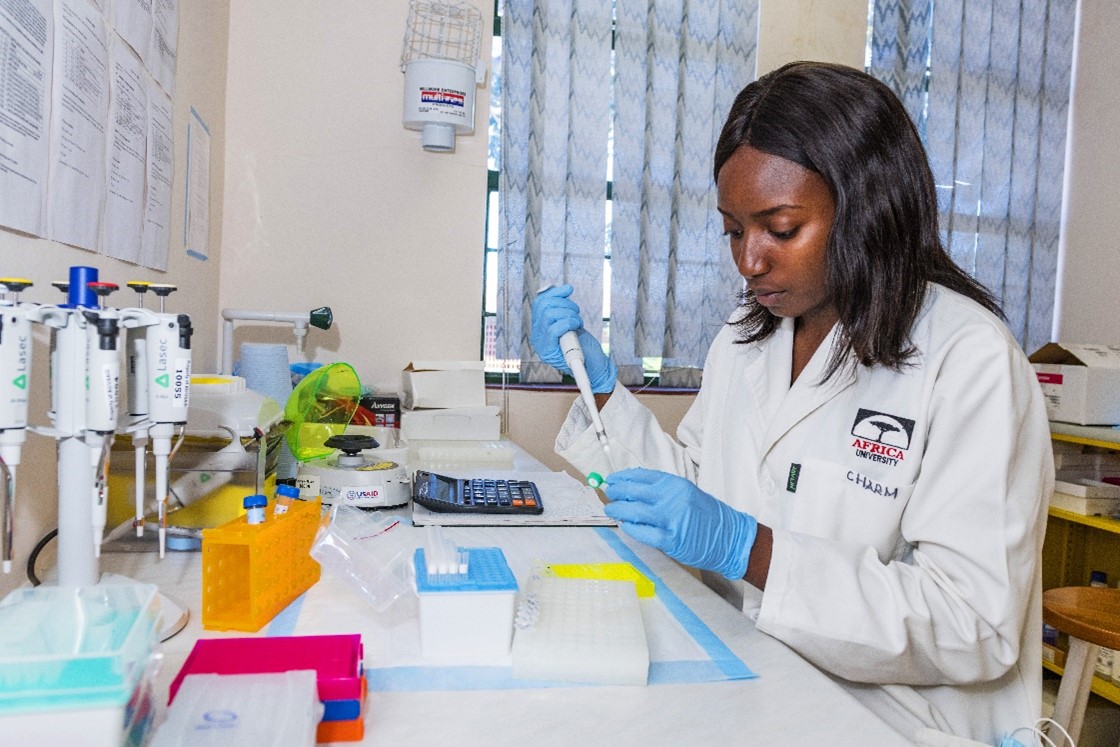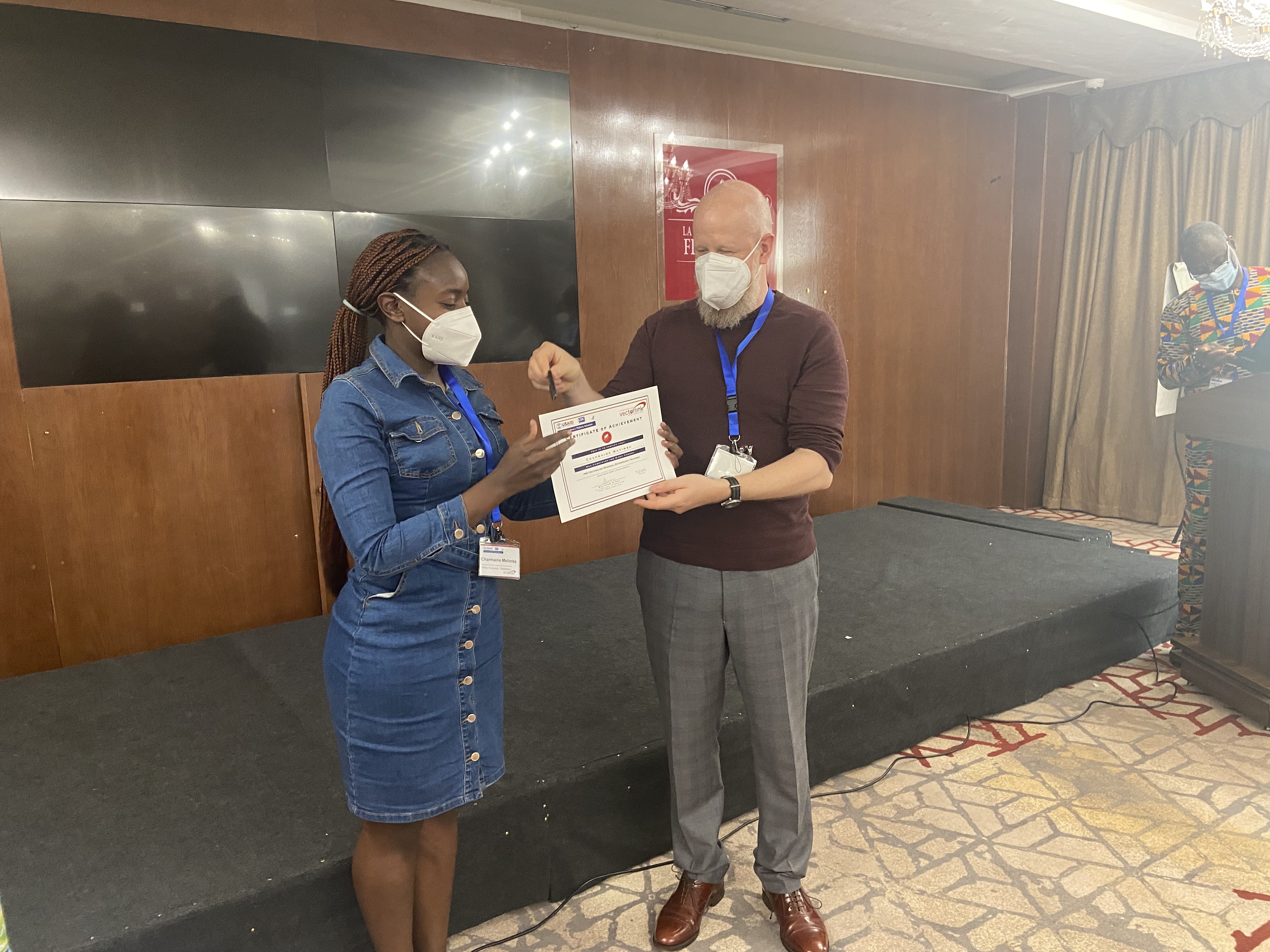Xuxa Gara and Charmaine Matimba have always been committed to improving health outcomes in Zimbabwe but did not originally plan to work with malaria-transmitting mosquitoes. Thanks to the U.S. President’s Malaria Initiative (PMI) VectorLink project’s capacity strengthening efforts—including the opening of the Malaria Research and Reference Insectary at Africa University (AU), a state-of-the-art insectary and research space—these women have become some of Zimbabwe’s toughest malaria fighters: Xuxa as the insectary manager and Charmaine as the laboratory manager.
Xuxa works with her team to maintain an Anopheles arabiensis mosquito reference colony by managing optimal conditions for mosquito production in the insectary. “A drop in the ambient temperatures in the insectary can have a huge impact on productivity and eventually determine the number of mosquitoes that can be provided to our partners. This requires the insectary team to always be attentive and sensitive to the needs of the insectary,” Xuxa says.
The mosquitoes are provided to the National Malaria Control Program (NMCP) and partners to test the quality of malaria vector control interventions—indoor residual spraying (IRS) and insecticide-treated nets (ITNs)—and inform their decision-making on the most appropriate malaria control method. The construction of the insectary means they can use lab reared mosquitoes that are known to be susceptible to the insecticides used for vector control interventions and do not need to rely on wild-caught mosquitoes.
VectorLink Zimbabwe has provided Xuxa with training and mentoring on insectary management so she can effectively run the insectary. “It was always my ambition to work in health and as a scientist,” says Xuxa. “It’s interesting being able to generate so much informative data from just a single mosquito caught in the field.”

Xuxa and her team are responsible for raising mosquitoes while Charmaine leads efforts in the laboratory. The analyses conducted by Charmaine and her team include mosquito species identification, insecticide resistance testing, and determining the malaria parasite infection rate. The information gathered from these analyses helps answer some key questions such as where are the gaps in protection, which mosquitoes are transmitting the parasite, why some insecticides no longer work, and where are people being bitten?
For Charmaine, what inspires her most is the zeal to answer these questions. “I had little knowledge of malaria when I first started working at AU on the Zimbabwe Entomology Support in Malaria Programme (ZENTO) Project, also funded by PMI. The interest grew as I was doing the work and I saw that there were so many questions to be answered. I believe that some of the answers will come out from the work I am doing here at the AU molecular laboratory through analyzing the mosquitoes that are collected in malaria endemic areas in Zimbabwe,” she shares. THE PMI ZENTO Project conducts continuous entomological surveillance in Nyanga and Mutasa districts as well as Mutare City, all in Manicaland Province. VectorLink Zimbabwe currently conducts much of the mosquito surveillance in Zimbabwe, which PMI ZENTO is set to take over with the closing of the PMI VectorLink Project.

PMI Zimbabwe, through VectorLink Zimbabwe and the U.S. Centers for Disease Control and Prevention, works with the AU laboratory to strengthen capacity and provides technical and management support and oversight to entomological activities in the country. Efforts included procurement of new laboratory equipment and supplies, on-site training, and regular mentoring by the VectorLink Zimbabwe team. In 2022, VectorLink Zimbabwe Technical Manager Dr. Hieronymo Masendu led a training on insecticide resistance testing using CDC and WHO techniques, which enabled AU staff to complete the procedure on their own, with guidance. Shortly after, Charmaine attended a regional entomology training hosted by the global PMI VectorLink Project in Dakar, Senegal.
“The trainings enhanced my knowledge in field work and surveillance that is done in order to answer specific questions and generate data that is meaningful and useful in vector control implementation,” says Charmaine.
“I now have the capacity to test an insecticide to measure its effectiveness in combating the malaria vector,” adds Xuxa, a skill that many AU staff did not previously have.

Bolstering the skills of scientists like Xuxa and Charmaine is critical to increasing Zimbabwe’s capacity to implement vital testing to ensure the NMCP is using the most effective vector control interventions to combat malaria. Through the establishment of the insectary, and the support of projects like PMI VectorLink and PMI ZENTO, AU is establishing excellence in malaria research in Zimbabwe, enabling the growth of malaria fighters like Xuxa and Charmaine.
Research and monitoring are so important to understanding mosquitoes and figuring out how to prevent them from spreading malaria. “Working in research allows me to be the first to identify something new and be able to tell the whole world a story about it,” says Xuxa. “My hope is that mosquitoes will one day not be referred to as a vector of malaria but rather a mere nuisance insect.”

